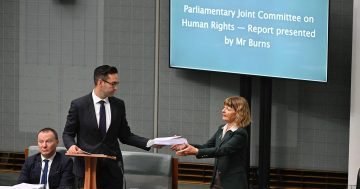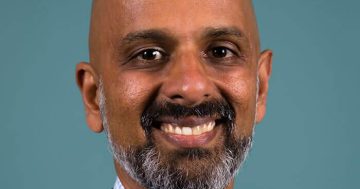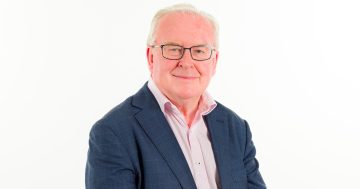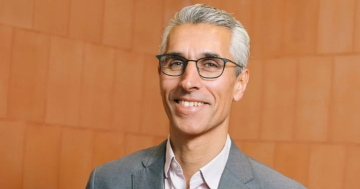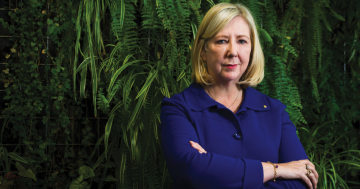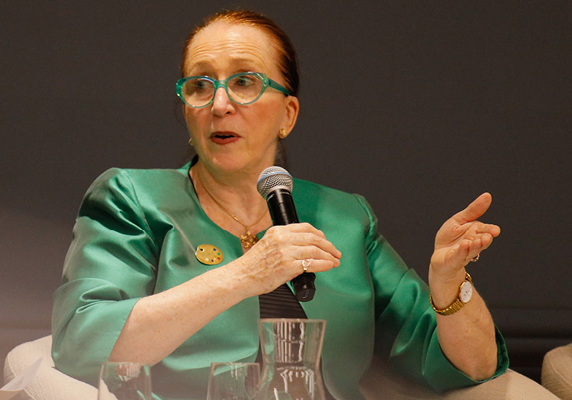
AHRC president Rosalind Croucher launched the National Human Rights Act proposal at an event in March last year. Photo: Law Society of NSW Journal.
It’s a surprise to most Australians that we don’t have a national Human Rights Act or Charter, but after years of “very big” royal commissions unravelling devastating findings, the idea is beginning to catch on.
That’s the belief of Rosalind Croucher, president of the Australian Human Rights Commission (AHRC). Among other major civil society players, the AHRC has been an active participant in a parliamentary inquiry establishing a federal human rights framework, set to report back to the government by 31 March.
While there are acts for Victoria, Queensland and the ACT, Australia is the world’s only liberal democracy lacking a national act or charter of rights explaining people’s basic rights and how they can protect them.
“People will also say our human rights are well protected through our system now, but I would answer no,” Professor Croucher says. “We think they are, but when the rubber hits the road, the gaps are exposed.”
The AHRC was implemented in 1986 as a parliamentary act to investigate unlawful discrimination in human rights and the paid workforce. But Professor Croucher says it was designed around having a Human Rights Act at the centre of Australia’s jurisdiction.
“We were seen as the mechanism for bringing those promises to the world in the domestic setting, by setting the legal framework that can be used as a tool for seeking justice,” she says.
“But there’s only bits and pieces of legislation in fair work, anti-discrimination and privacy. Not that comprehensive embodiment of your rights that would provide each of us with an understanding of our rights and ability to seek justice when government and politicians let you down.”
In 2008, a big push was led by Father Frank Brennan with several civil society movements such as the Human Rights Law Centre (HRLC). But Professor Croucher says things escalated after the major royal commissions into aged care, disabilities, institutional child abuse and Robodebt.
“So you end up with all this shocking the living daylights out of us, begging the question as to why we have these abuses?” she says.
”Why did no-one care? Why were there no tools providing access to justice for people in marginalised situations?
“I think that changed the pub test in terms of why we need a Human Rights Act. Especially when a lot of people were very disgruntled by the human rights inroads they personally experienced during COVID.”
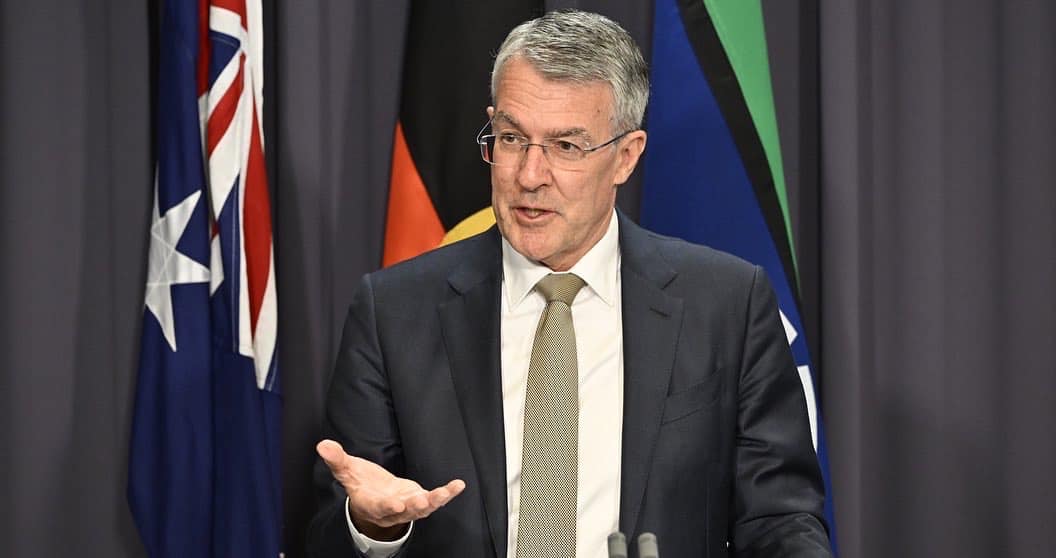
Early last year, the AHRC provided Attorney-General Mark Dreyfus with a report bearing the Free & Equal program‘s five years of work examining the nation’s legal framework around human rights and anti-discrimination. Photo: Supplied.
Professor Croucher says she knows Attorney-General Mark Dreyfus has had a deep interest in the AHRC’s work because he gave the terms of reference to the parliamentary joint committee.
One common opposing argument the Professor hears most is that “it’ll be a lawyer’s picnic”.
“Well, no, if people understand things better, you don’t need lawyers to help them.”
And on the worry that it may end up like the deeply politicised US Supreme Court, which makes laws on the rights entrenched in America’s constitution, she says: “Unlike their model, we want the parliamentarians and judges to have a responsibility in their proper spheres. To make laws in parliament, interpreted in the courts, with the human rights lens as a guiding tool.”
In December, the UN torture prevention body released its report on its October 2022 visit. It was terminated after its representatives were blocked from accessing prisons and mental health facilities in NSW and Queensland.
Apparently, the experts “experienced persistent negative media coverage, including pernicious remarks from government officials in certain regions, amounting to what the Subcommittee would qualify as a smear campaign”.
They went on to say that it “no doubt” contributed to the hostility they faced, leading them to believe it was representative of the facilities’ treatment.
Asked whether this or something like last year’s coordinated ”If you don’t know, vote no” campaign could be provoked, Professor Croucher says: “Even if there is pushback against it, I would welcome the opportunity to engage with people and show them.
“Let’s talk about the detail. Let’s talk about how this protects you, your brothers, sisters, mother, father, and the communities you come from.”
Original Article published by James Day on PS News.












